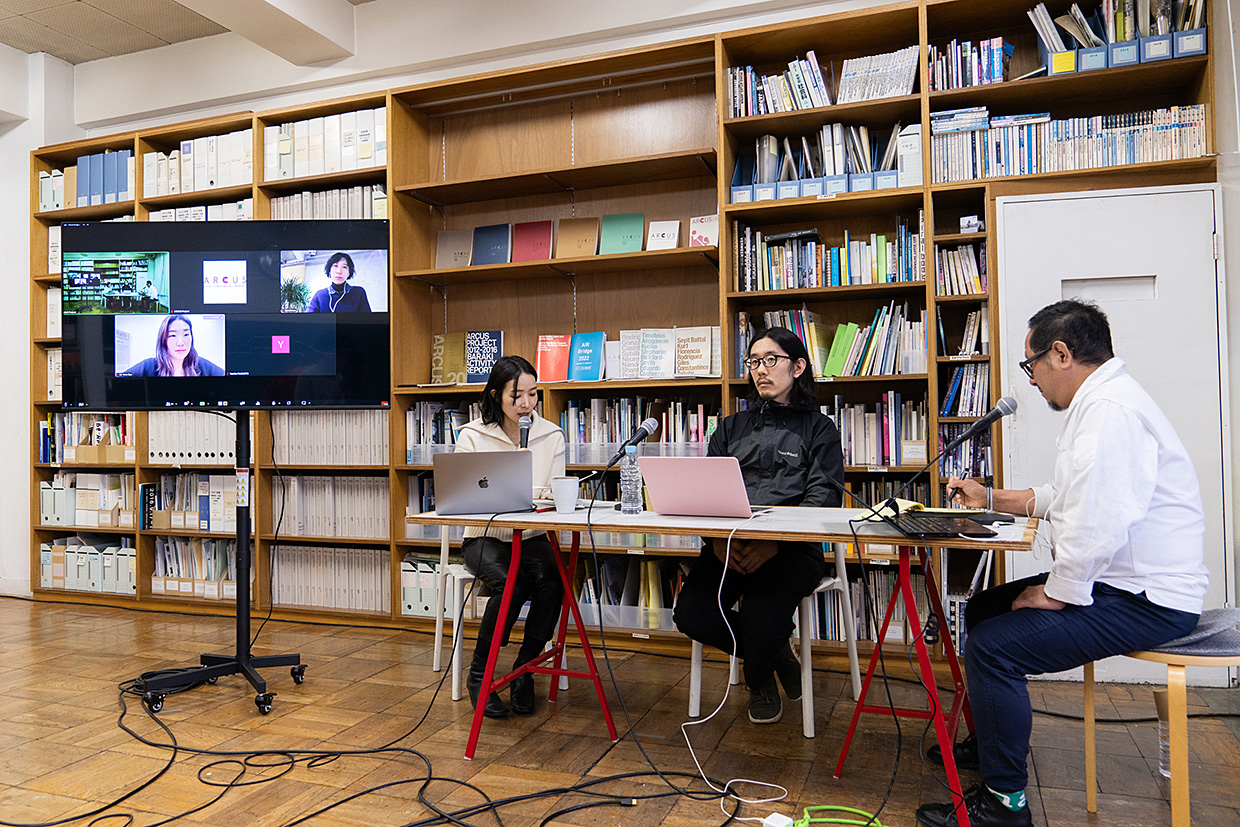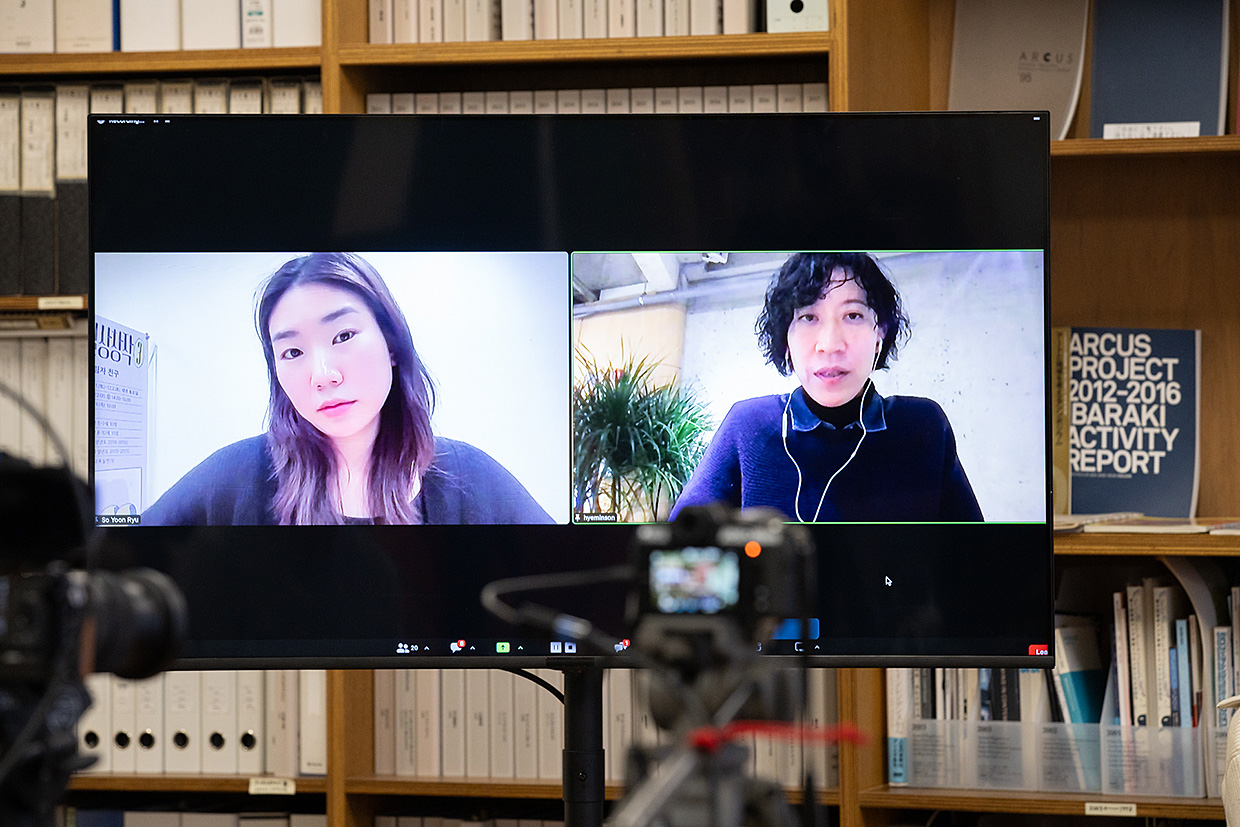
Working together with overseas residency programs and initiatives, the Exchange Residency Program sends abroad and invites to Japan artists and curators to support Japanese artists’ practices and encourage a more enriching exchange in the arts and culture between artists and curators of both in and outside Japan. Launched in 2017, ARCUS Project have made a partnership with the Kuandu Museum of Fine Arts (KdMoFA) in Taiwan, Hospitalfield in Scotland, and SeMA Nanji Residency in South Korea to support artists and curators’ research and projects by stimulating creative discourses between the two countries.
Program for 2023
Working together with SeMA Nanji Residency, ARCUS Project sends the Japanese artist to South Korea and invites the Korean artist.
Program Period
- SeMA Nanji Residency:
- September 15 – November 14, 2023 (61 days)
- ARCUS Project:
- June 9 – August 9, 2023 (62 days)
Partner Institution – SeMA Nanji Residency (South Korea)
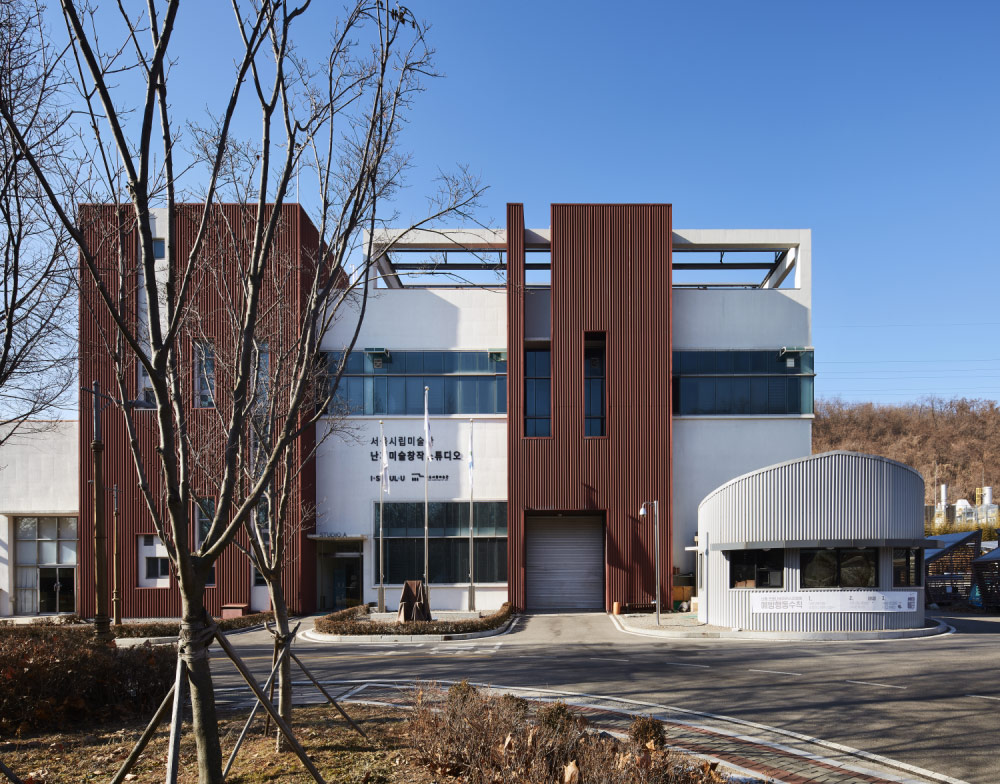
Photo: Kim YongKwan
SeMA Nanji Residency was opened in 2006 by renovating a leachate treatment facility in Nanjido, Seoul. The residency operates various programs designed to revitalize international exchanges and provides studio spaces for artists to allow them to concentrate on their artistic activities in a stable environment. Located in central Seoul, the facility has twenty-five studios, labs, circular galleries, and outdoor workshops where programs to nurture and support talented artists and researchers.
https://sema.seoul.go.kr/en/visit/nanji_residency
Selection
Japanese artist was selected by SeMA Nanji Residency from those nominated by ARCUS Project.
Korean artist was nominated by SeMA Nanji Residency from an open call for residency alumni.
Nagata Kosuke
Japan

Born in Aichi Prefecture in 1990. Lives and works in Kanagawa Prefecture. Locating fundamental components such as social structure, today’s media technology, and our sensory system to perceive various phenomena in his artistic interest, artwork by Kosuke Nagata continues to emerge ambiguity in the process of distinguishing one from another.
http://knagata.org
[Selected Exhibitions and Activities]
2022 Feasting Wild, karch, Ishikawa
2020 αM Project 2020–2021 Halfway Happy vol.2 Kosuke Nagata: Eat, gallery αM, Tokyo
2022 Seeing as though touching: Contemporary Japanese Photography vol.19, Tokyo Photographic Art Museum, Tokyo
2019 Aichi Triennale 2019: Taming Y/Our Passion, Aichi Prefectural Museum of Art, Aichi
2018 Open Space 2018: in transition, NTT InterCommunication Center, Tokyo
Process

Research on the history of sake brewing
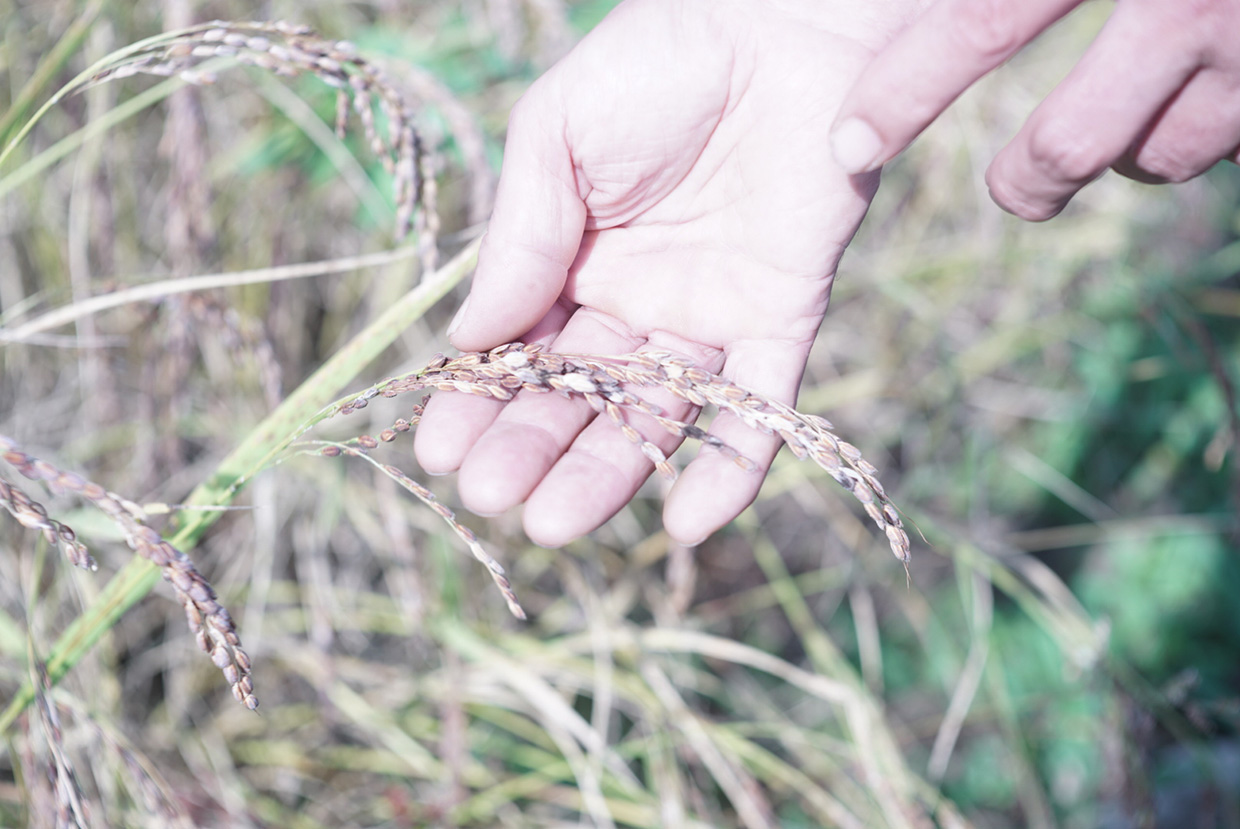
Visit to the rice farmer/brewery in Seoul

Visit to the rice farmer/brewery in Seoul

Home-brewing of makgeolli (Korean rice wine) with koji
Open Studio
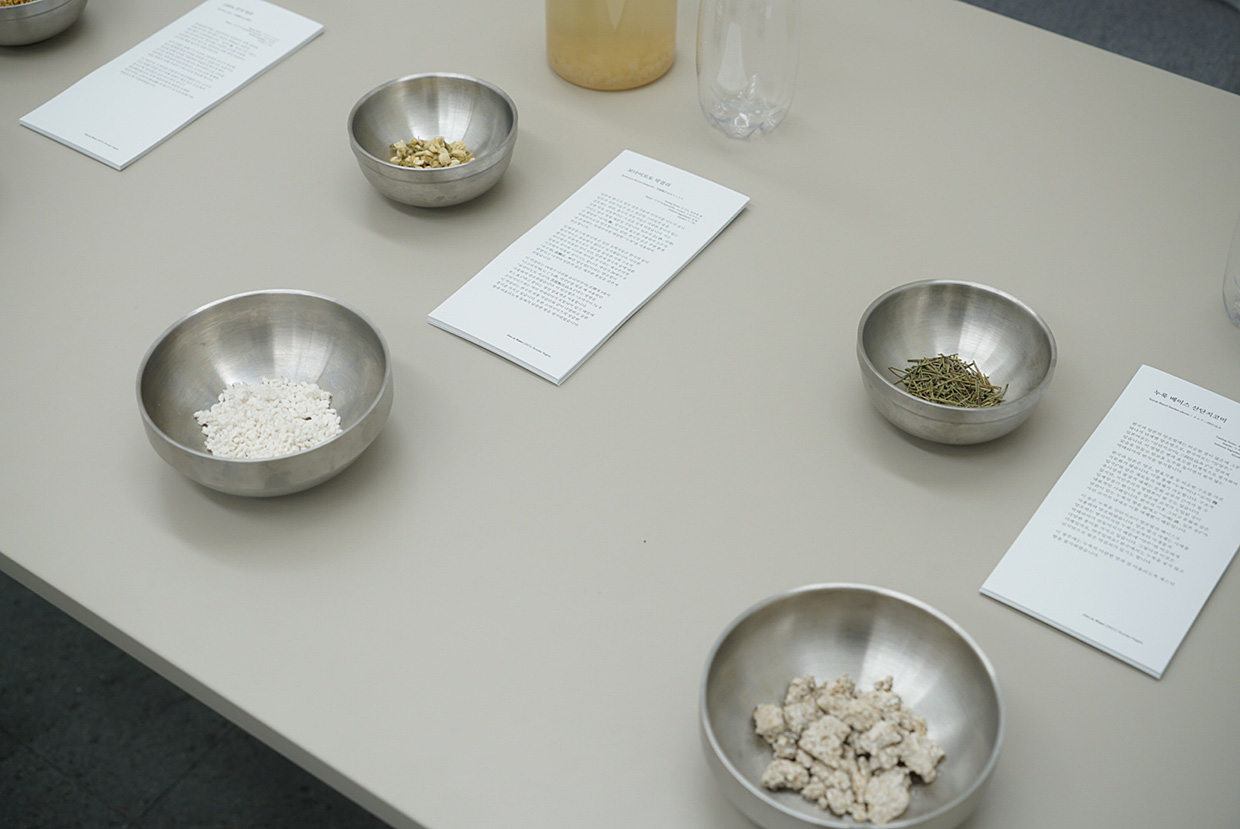
Open Studio
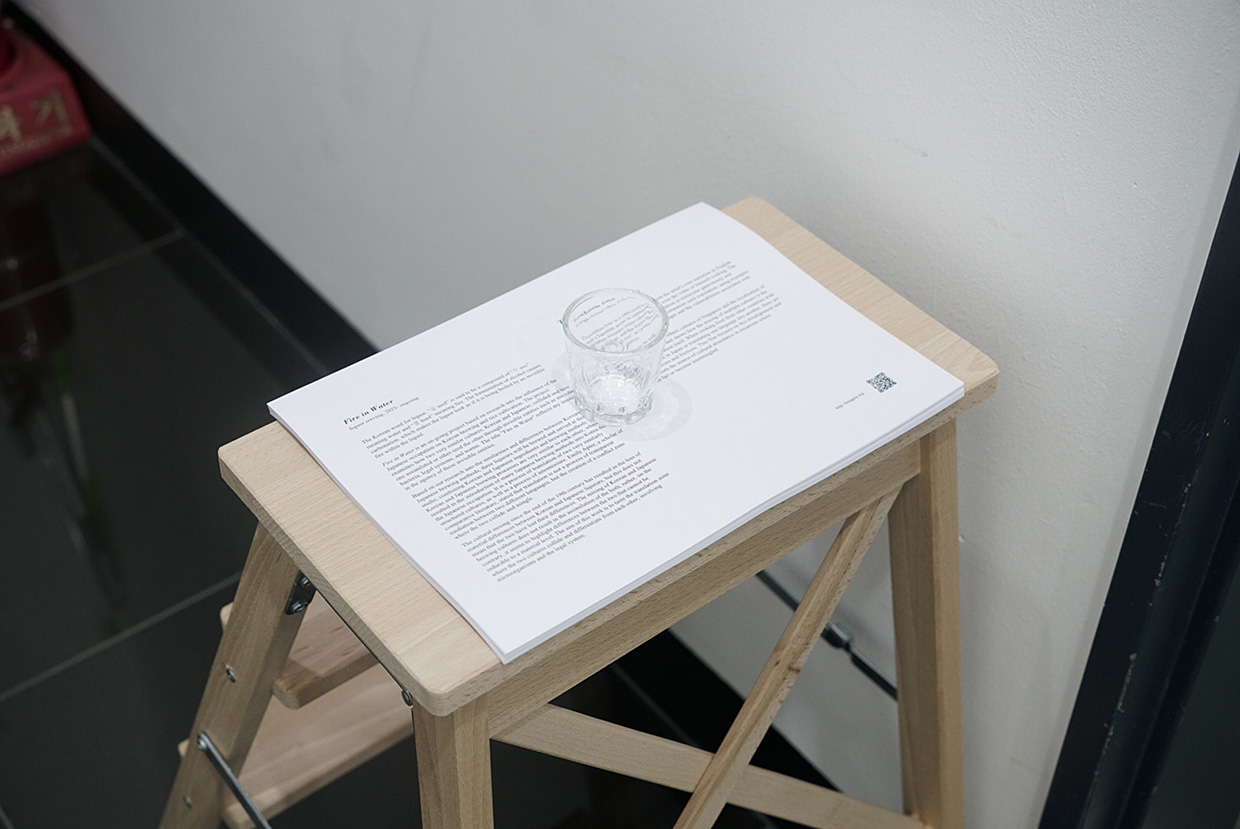
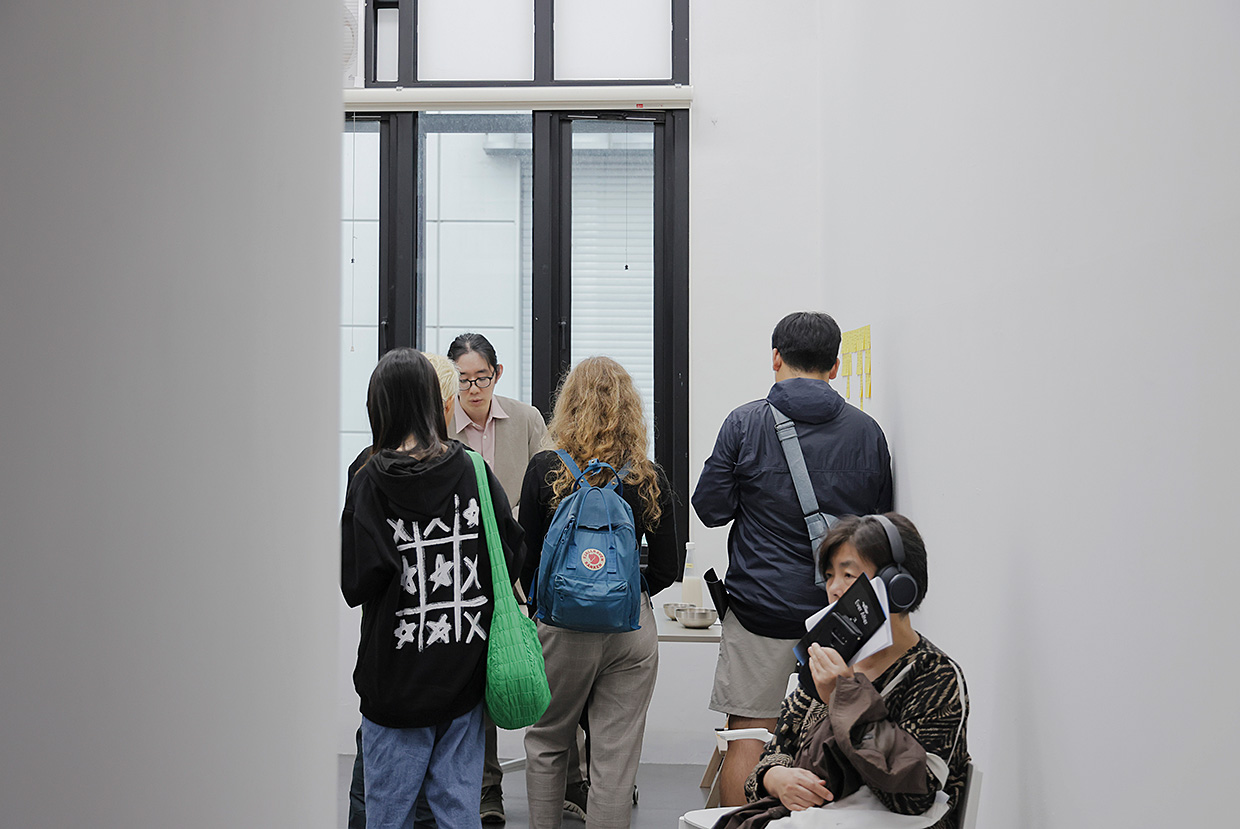
Reason for Nomination
For the Exchange Residency Program, Nagata Kosuke will undertake a project reconsidering the relationship between Korea and Japan through food culture and transport by sea. In the seventeenth century, chili peppers were introduced from Japan to Korea, where they were mixed with pollock roe to form a salted dish called myeongnanjeot, which was then brought at the start of the twentieth century to Japan from Korea when it was a Japanese colony and became known as mentaiko. During the same period, small dried fish called niboshi were introduced to Korea from Japan and became established as the base for soup stock. In order to elucidate the history of ordinary people’s lifestyles and culture, Nagata will conduct interviews in South Korea with experts on fishing and related foods, and attempt to understand Japanese and Korean food cultures intersubjectively through the same sea that they have traversed. Having produced a body of work to date that explores food to provide insights on how nation-states and ideologies assimilate and eliminate, Nagata’s interests curiously parallel in many ways those of Rice Brewing Sisters Club, who ARCUS Project will host for the Japanese part of the program. His project will endeavor to imagine the interchange of culture between Japan and Korea that took place during those premodern times when marine culture prospered due to bustling maritime transport and fishing. (Diredtor, Ozawa Keisuke)
Artist Statement
During my residency, I created works based on research of Korean food culture. Specifically, I researched the influence of Japanese colonial rule and the Korean War on rice cultivation and brewing in Korea, and created a lecture performance piece which included the serving of home-brewed alcohol based on this research.
In farming and in brewing, plants, animals, fungi, bacteria and humans interact with each other, creating a heterogeneous situation where human social relations, such as taxation and regulations, and non-human mechanisms, such as ecosystems, are intertwined. Agricultural scientist Terao Hiroshi stated that ‘rice is also a Yamato people.’ But, how did non-human, invisible entities such as the rice genome, fungi and bacteria combine with colonialism to reconfigure the farming and brewing culture of the Korean Peninsula? This was the focus of my interest during the residency.
In the course of researching rice cultivation and alcohol brewing in Korea, it became clear that much of the rice mass-produced in Korea, and the alcohol produced industrially, is made from varieties, fungi, bacteria and brewing methods which were introduced by Japan during the colonial period. During my residency, I attempted to approach these invisible traces of colonialism by non-human entities through aroma and taste. By ‘tasting’ these invisible traces, I sought a way to physically experience and consider what cannot be seen, even as it remained so.
Rice Brewing Sisters Club (Son Hyemin and Ryu Soyoon)
South Korea
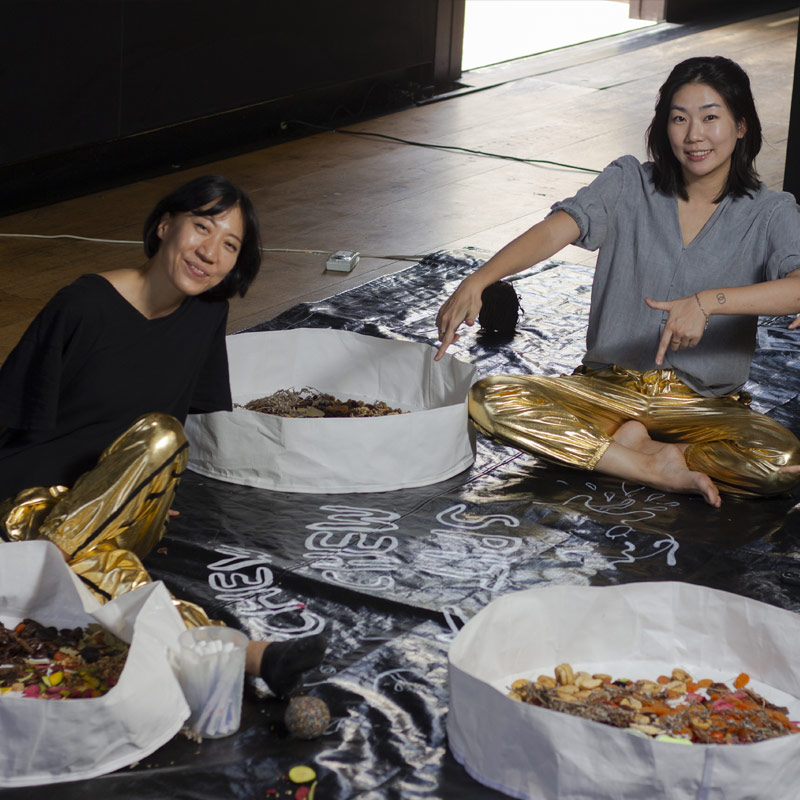
Currently comprising Son Hyemin and Ryu Soyoon, Rice Brewing Sisters Club (RBSC) is an artist collective established in 2018 around the members’ crossing interests in experimenting with the processes of “social fermentation” as an artistic form. With a participatory practice encompassing visual arts, performance, creative writing, oral history, ecological thinking, and auntie’s wisdoms, RBSC seeks to build synergetic networks to co-create shared visions for the future.
https://www.instagram.com/ricebrewingsistersclub/
[Selected Exhibitions and Activities]
2022 Busan Biennale: We, on the Rising Wave, Museum of Contemporary Art Busan, South Korea
2022 Hackers, Makers, Thinkers: Collective Experiments in Social Fermenting, Art Laboratory Berlin, Germany
2021 Kkureomi: Unboxing with the Sisters, the 13th Gwangju Biennale public program, South Korea
2020 Soil-Soil-Land, a farm in Anseong, South Korea
Process
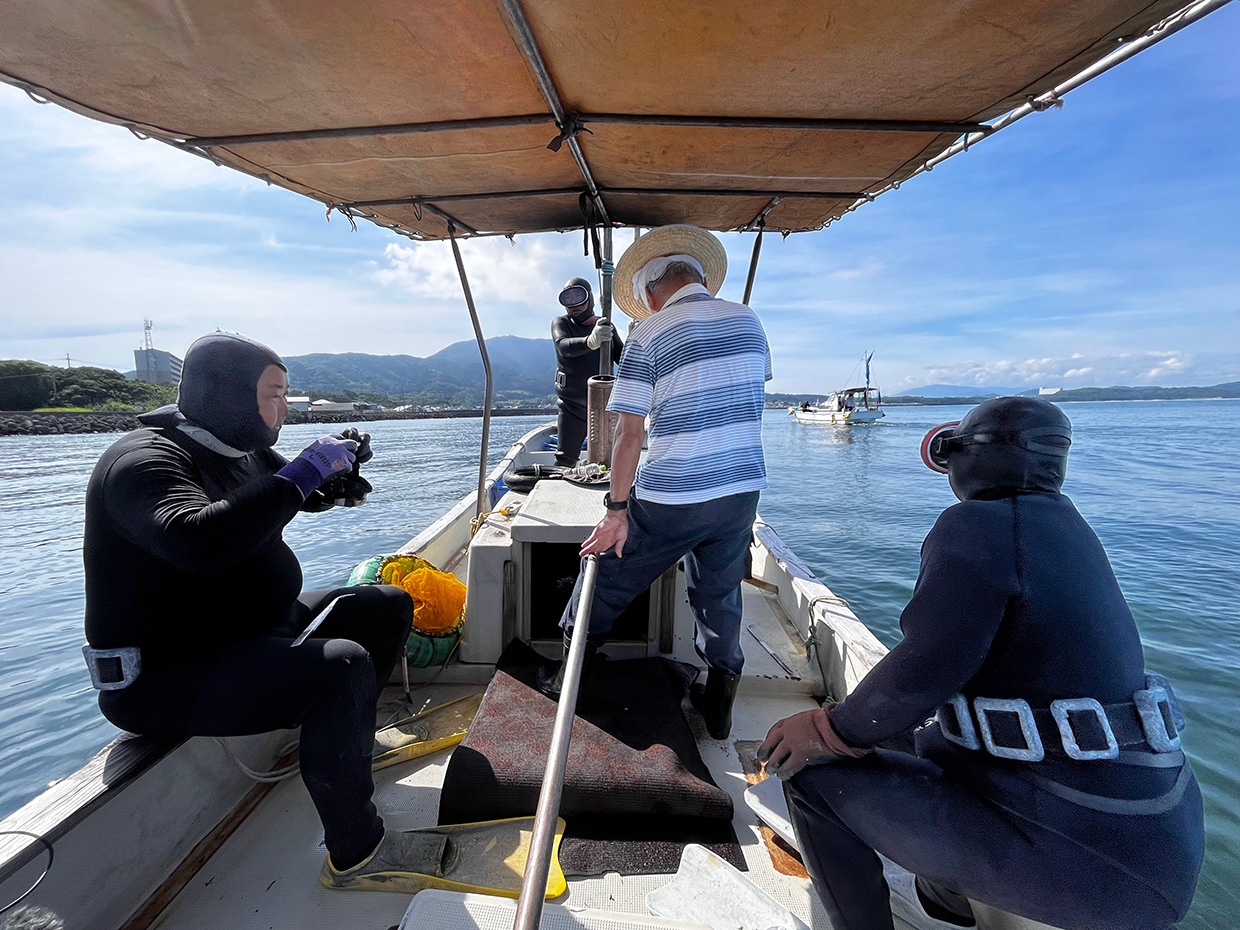
Accompanying ama harvesting
(Kanezaki, Munakata City, Fukuoka Prefecture)

Night swim experience with ama
(Minami-Boso City, Chiba Prefecture)

Summer festival in Suzaki, Shimoda City, Shizuoka Prefecture
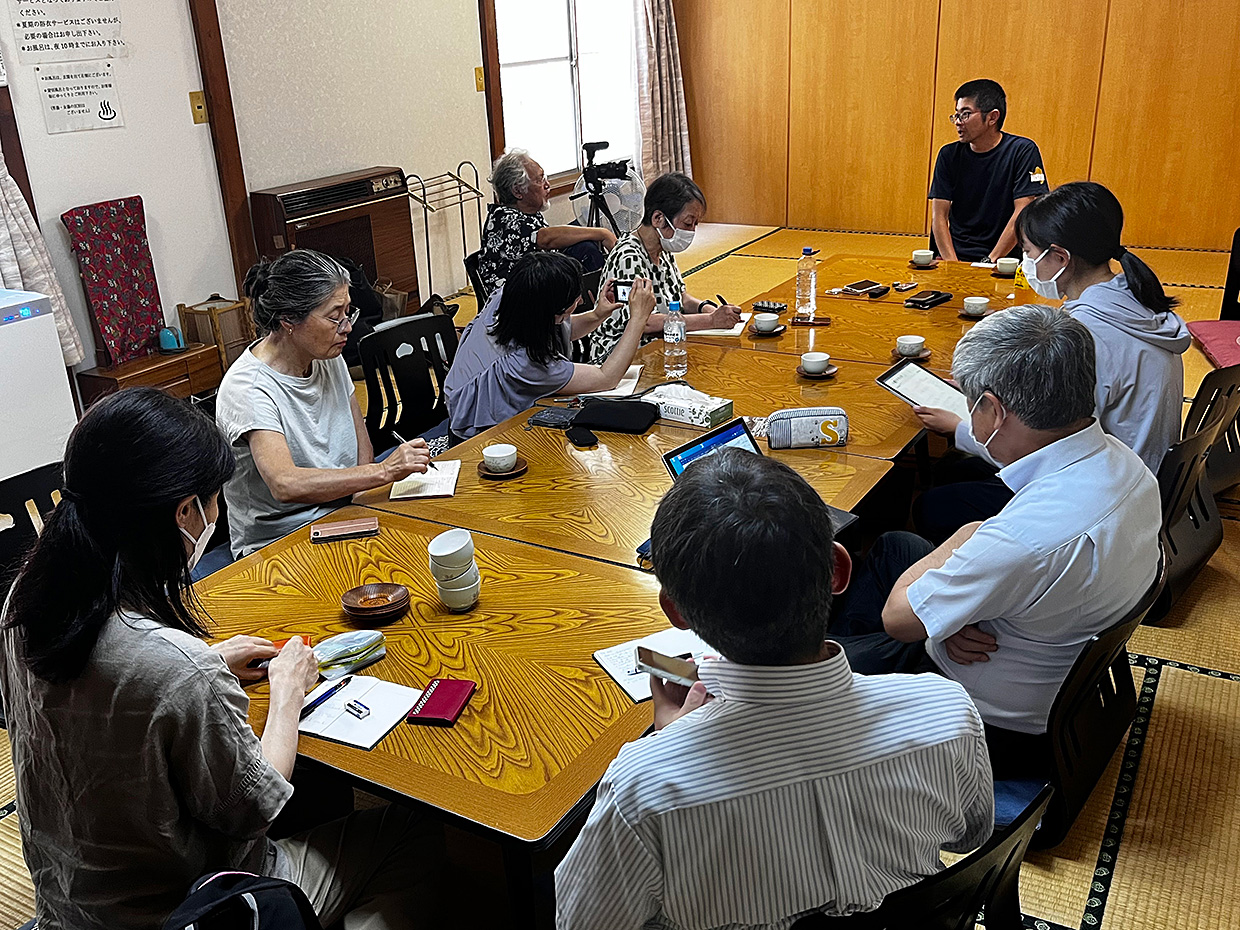
Field research with a group of researchers
(Suzaki)

Interview about making the traditional agar
(Chino City, Nagano Prefecture)

Experiment in making agar-agar-based plastics
Reason for Selection
The Rice Brewing Sisters Club (RBSC) collective’s interests lie in lifestyle and cultural practices across South Korea, Japan, and other countries along the Asian edge of the Pacific Rim. In particular, RBSC’s work rereads geographical connections between islands and those histories through interaction with the lifestyle, work, and environments of female divers. At ARCUS Project, the collective will focus on female divers (known in Japan as ama) and the closely related food agar-agar (made from sea algae harvested by such divers), visiting research institutes and ama fishing communities and conducting cultural and historical research. It will also attempt to reinterpret the occupation of the ama sea diver in terms of ecology and labor. Artworks at international exhibitions today frequently explore such themes as the environment and ecosystems, migration across national borders and its collective memory, and gender and sexual diversity. At a time when many are questioning the universal and male-dominated values of modern society, RBSC’s project will surely shine light on the period of transition through which we are currently living from a wide range of perspectives. (Ozawa Keisuke)
Artist Statement
Our residency at ARCUS took place at a time when many oceans were coming together in our minds, through historical memories of seaweeds, female labor, and the interoceanic migration of female divers. At the center of the connection lay marine algae called agar-agar, known as umutgasari in Korean and tengusa in Japanese. A type of red algae, it grows 20-50 meters deep and can only be harvested with bare hands – this labor of diving, harvesting, drying, and selling has been done by female divers called haenyeo or ama. Telling interoceanic stories of agar-agar is a deeply historical inquiry, as it was mostly produced in the oceans of South Korea but consumed in Japan from as early as the 18th century. Haenyeos of Jeju and Busan were thus at once technicians, producers, breadwinners, and migrants – these stories are rarely documented but vividly remembered by auntie ama-san.
Our studio in Ibaraki was a base in which we came up with a two-month-long itinerary of various sea villages throughout Japan from Kanezaki (Fukuoka), Minamiboso (Chiba), and Toba (Mie) to Suzaki (Shizuoka). Starting deep in the land, we traveled from coast to coast with intermittent stops at the mountains of Nagano. Such dynamic routes were those taken by agar-agar – it was through these routes that the red algae was processed into kanten and became a beautifully transparent and agile material that we are now using to make biodegradable plastic. All the encounters, travels, and experiments through ARCUS taught us to perceive agar-agar as a storied matter. Through them we continue to tell our stories, bringing untold histories to light and making a patchwork of the oceans that continues to reconnect what we have divided.
Report of Residencies in South Korea/Japan: Dissolving Boundaries, Fermenting Societies
Date: November 26, 2023 2-4 p.m.
Venue: ARCUS Studio and online streaming
Speakers: Nagata Kosuke, Rice Brewing Sisters Club (*RBSC participated remotely)
Moderator: Fujimoto Yumiko (Coordinator, ARCUS Project)
Participating artist from Japan Nagata Kosuke, who stayed in Korea, and Son Hyemin and Ryu Soyoon of the Korean artist collective Rice Brewing Sisters Club (RBSC), hosted by the ARCUS Project, spoke their work during their respective two month residencies and outlooks for the future. Nagata, who has examined assimilation and exclusion by the state and ideology through the perspective of food culture, researched the history of sake brewing under Japanese colonial rule during his residency in Korea, taking on the challenge of home-brewing makgeolli (Korean rice wine) with the cooperation of rice farmers and breweries in Seoul. RBSC have been expressing the historical, cultural and political narratives of food preparation and consumption traditions across generations, by likening them to the fermentation process of rice and other foods. During their residency, they researched ama (female divers), and through dialogue with ama and researchers throughout Japan, attempted to redefine the divers in terms of the environmental considerations and labor involved in fishing. Both projects expand beyond human factors such as communities and producers, influenced by invisible elements such as microorganisms and weather. This practice without end may resemble a kind of ‘fermentation,’ with its continuous change. Through the works of both groups of artists, we considered the time of crisis in which we live, as well as the future.
